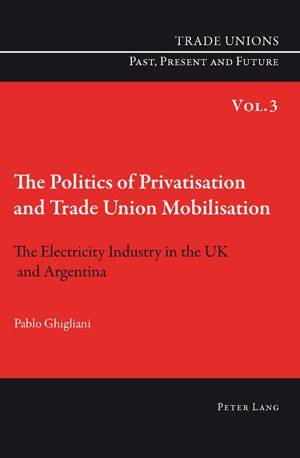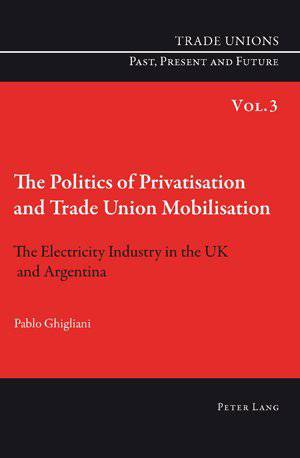
- Afhalen na 1 uur in een winkel met voorraad
- Gratis thuislevering in België vanaf € 30
- Ruim aanbod met 7 miljoen producten
- Afhalen na 1 uur in een winkel met voorraad
- Gratis thuislevering in België vanaf € 30
- Ruim aanbod met 7 miljoen producten
Zoeken
The Politics of Privatisation and Trade Union Mobilisation
The Electricity Industry in the UK and Argentina
Pablo Ghigliani
€ 81,45
+ 162 punten
Omschrijving
This is a comparative study of how workers and their unions respond to privatisation. Drawing upon research from a variety of disciplines, the author examines the push toward privatisation in diverse national settings, its profound impact on organised labour, and the often innovative responses of workers and their unions in the affected industries. By means of a detailed analysis of the privatisation of the electricity industries in the United Kingdom and Argentina, and the various initiatives of workers and their trade unions in these two countries, this book offers an engaging comparative case study that sheds new light on key issues in contemporary labour studies: the strategic choices available to workers and their organisations when faced with the radical restructuring of their industries; the types of resources available to trade unions and how they are mobilised; and the impact of widespread worker unrest on their organisations. This book also provides fresh insight into the use of mobilisation theory in the field of labour studies. The author employs mobilisation theory to make sense of worker and trade union responses to privatisation, and he argues that this theoretical framework can be useful for cross-national comparisons.
Specificaties
Betrokkenen
- Auteur(s):
- Uitgeverij:
Inhoud
- Aantal bladzijden:
- 279
- Taal:
- Engels
- Reeks:
- Reeksnummer:
- nr. 3
Eigenschappen
- Productcode (EAN):
- 9783039119615
- Verschijningsdatum:
- 1/09/2010
- Uitvoering:
- Paperback
- Formaat:
- Trade paperback (VS)
- Afmetingen:
- 150 mm x 15 mm
- Gewicht:
- 430 g

Alleen bij Standaard Boekhandel
+ 162 punten op je klantenkaart van Standaard Boekhandel
Beoordelingen
We publiceren alleen reviews die voldoen aan de voorwaarden voor reviews. Bekijk onze voorwaarden voor reviews.











